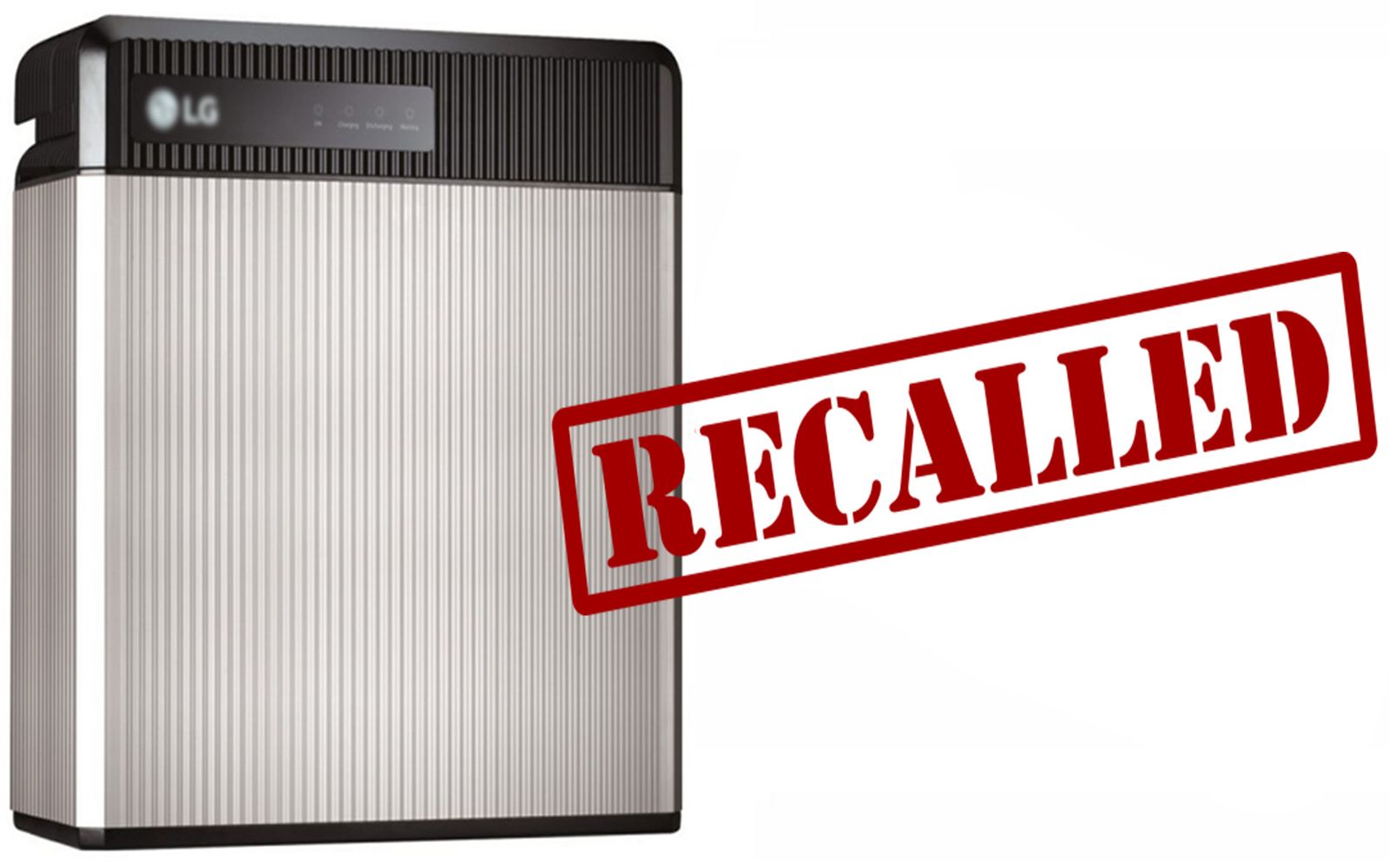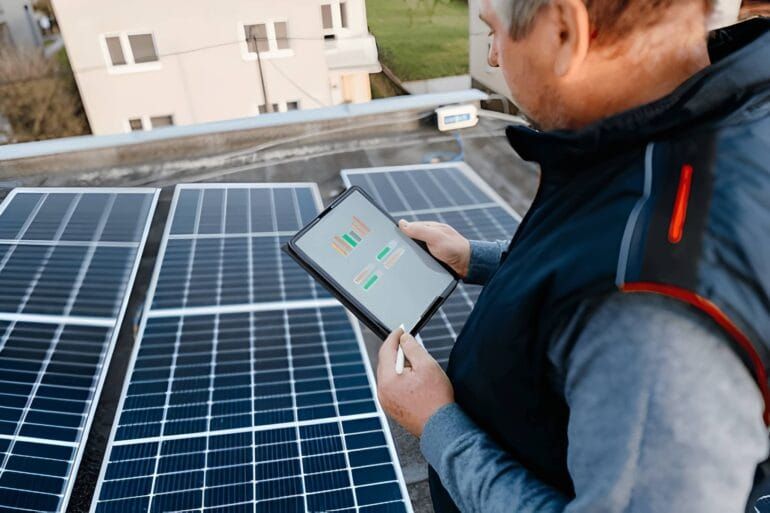Batteries Recalled: A recall of batteries occurs when a company recalls a batch of batteries due to a manufacturing defect or safety hazard.
Solar batteries are energy storage devices that capture the energy produced by solar panels and release it when required.
They are used where people have no access to the power grid, such as in remote locations or camping sites.
Solar batteries don’t need sunlight all day long – they just need to store enough energy during daylight hours,
so that you can use it later in the evening or any other part of the day when there is no sunlight.
These devices may come in different shapes and sizes, but their basic functionality remains the same: storing solar energy for future use.
There are a lot of solar battery brands on the market, each with its own pros and cons.
When looking for a solar battery for your camper, RV, or any other off-grid location, here are some useful tips that will help you make an informed decision about which one to buy:
Batteries Recalled: Check the warranty and make sure it’s for at least 5 to 10 years
Any serious manufacturer will offer a solid warranty. When buying a solar battery, check the warranty period.
Ideally, you will want a product with a warranty of at least 5 to 10 years –
this will give you enough time to recover the cost of replacing the battery if you need to.
SENEC Battery for Solar Energy Storage Systems would be one of the greatest choices.
A long warranty indicates confidence in the quality of the product, which is an important factor to consider when making your choice SENEC for instance provides a 10-year of warranty to its consumers.
Also, many manufacturers offer an extended warranty for an extra fee – if you can afford this, it’s an added bonus.
A good warranty will also ensure that, even if your battery dies earlier than expected, you are protected.
Remember that you are making an investment when buying a solar battery, and you will want to get your money’s worth.
If the battery has a short lifespan, it may not be worth the money.
Identify how often you will use your battery for batteries recalled
If you are buying a solar battery for the first time, it is important to identify how often you will use it.
This will help you choose the right capacity. For example, if you are planning to charge two laptops, a couple of lights, and a fan,
then you need a battery with a higher capacity.
If you just need a backup for your cell phone, then a smaller capacity will do.
If you are using a solar battery to power your home, it is important to remember that the battery will charge up slowly.
This is because solar power is fairly inefficient when compared to the power grid.
A large solar battery will take many hours to charge, so it is important to plan ahead.
The ACCC will be directly contacting almost 5,000 households that are likely to have energy solar systems
with dangerous LG solar batteries in the coming weeks, in an effort to raise awareness about safety recalls.
Be sure to check the amp-hour rating
This is a crucial characteristic of a solar battery – it will tell you how much energy it can store.
The higher the amp-hour rating, the more energy the battery can store.
For example, if you are planning to run a small light for about 5 hours, you will need a battery with at least 20 amp-hours.
Ideally, you should look for a solar battery with a rating between 20 and 50 amp-hours.
It is important to remember that the amp-hour rating of a battery is calculated at a constant rate of discharge.
This means that the battery will release energy at a steady rate for as long as it is connected.
This means that, if you have a small solar battery, it will charge your devices very slowly.
Ask about battery reliability and warranty
When you are talking to manufacturers about solar batteries, it is essential to ask about battery reliability and warranty.
Find out if there have been any issues with the battery and whether if batteries recalled.
Most solar battery manufacturers understand that their product needs to be reliable, so you should be able to find out the full story behind any issues.
Additionally, you should ask about the warranty on the solar battery.
Ideally, you want a product that comes with a 5-year warranty. After all, you are making an investment when buying a solar battery.
When choosing a solar battery, it is essential to remember that cheaper isn’t always better.
If you buy a battery that is poorly constructed, it may not last very long at all.
You should look for a reputable manufacturer with a good track record of producing high-quality solar batteries.
Look for durability and quality when choosing solar panels
When buying solar panels, you need to look for quality and batteries recalled signs (alerts). Solar panels are the most important components of a solar battery. The quality of the solar panels will determine how efficient your solar battery is. You can identify quality solar panels by their wattage. The higher the wattage, the more efficient the solar panels will be.
Look for solar panels with a wattage between 6 and 10 watts. The panels are also an important factor when it comes to the warranty on the solar battery. The higher the wattage, the longer the warranty will be. When buying solar panels, it is important to find out how long the warranty will last. After all, you need your solar panels to last as long as your battery.
Learning from Recalls: Industry Improvements
Battery recalls, although concerning, serve as an opportunity for the solar industry to learn, improve, and prioritize safety. Each recall offers valuable insights into the potential weaknesses of battery systems and highlights areas for enhancement. Manufacturers can use this feedback to refine their design and manufacturing processes, implement stricter quality control measures, and strengthen safety features.
Furthermore, recalls often lead to increased scrutiny and regulation within the industry. Regulatory bodies and industry organizations can evaluate the root causes of recalls and develop more robust safety standards and guidelines. These measures can help prevent similar issues from recurring in the future and provide consumers with greater confidence in the reliability and safety of solar battery systems.
Consumer Awareness and Education
Amidst battery recalls, consumer awareness and education play a crucial role in ensuring safety and informed decision-making. Solar energy providers, manufacturers, and industry associations should actively educate consumers about the benefits, risks, and safety measures associated with solar battery systems.
Providing comprehensive and accessible information regarding installation requirements, maintenance procedures, and safety precautions can empower consumers to make informed choices. This includes guidance on selecting reputable manufacturers, understanding product certifications, and recognizing warning signs of potential battery issues. By fostering consumer education, the industry can promote safer and more informed adoption of solar battery technology.
Government Regulations and Standards
Government regulations and standards also play a vital role in ensuring the safety and quality of solar battery systems. Regulatory bodies should establish clear guidelines for manufacturers to adhere to during the design, production, and testing phases. These regulations can cover aspects such as safety certifications, quality control, and performance standards.
Furthermore, governments can collaborate with industry stakeholders to develop comprehensive policies that incentivize the production and installation of safe and reliable solar battery systems. These policies may include financial incentives, grants, or tax credits for manufacturers and consumers who meet stringent safety requirements. By aligning industry practices with government regulations, the solar battery sector can further improve its safety standards.
Prioritizing Safety and Reliability
The recalls and alerts surrounding solar batteries highlight the importance of prioritizing safety and reliability within the solar industry. While these incidents raise concerns, they also provide opportunities for improvement, fostering stronger safety measures, and enhancing consumer trust in solar battery technology.
Consumers should remain vigilant by staying informed about recalls, following manufacturer guidelines, and seeking professional assistance when needed. Manufacturers, in turn, must uphold high standards of quality control, collaborate with regulatory bodies, and maintain open lines of communication with consumers.
By addressing the challenges associated with solar battery recalls, the industry can continue to advance its technologies, increase energy independence, and contribute to a more sustainable future. With ongoing improvements in safety standards, consumer education, and government regulations, solar battery systems can play a pivotal role in the transition towards a clean and renewable energy landscape.
As the solar industry evolves, it is crucial to recognize that the well-being and satisfaction of consumers should remain at the forefront. By placing safety and reliability as top priorities, the solar industry can build a foundation of trust and confidence in solar battery systems, enabling a brighter and more sustainable energy future for all.
Conclusion:
The growing popularity of solar battery systems has brought both benefits and challenges to the renewable energy industry. While these systems offer the opportunity for increased energy independence and efficiency, it is essential to remain vigilant about safety concerns and potential recalls.
By staying informed, following manufacturer guidelines, and taking necessary precautions, consumers can ensure the safety and optimal performance of their solar battery systems. Manufacturers, on the other hand, must prioritize quality control, adhere to safety standards, and maintain open lines of communication to address any issues promptly.
As the solar industry continues to evolve, it is crucial for all stakeholders, including manufacturers, consumers, and regulatory bodies, to work collaboratively towards advancing the safety, reliability, and sustainability of solar battery technologies. By doing so, we can harness the full potential of solar energy while ensuring the well-being and satisfaction of solar system users.







